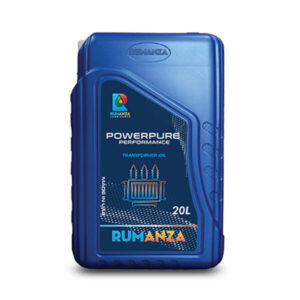Marine Oil Guide: Types, Benefits, and Applications
What is Marine Oil?
Marine oil refers to a range of lubricants specifically designed for use in maritime engines and machinery. These oils are formulated to lubricate moving engine parts, reduce friction, prevent wear, and protect against corrosion, which is particularly critical in saltwater environments. Marine oils also play a pivotal role in cooling engine components, removing contaminants, and maintaining the efficiency of various mechanical systems. They are designed to perform under the harsh conditions that boats, ships, and offshore platforms encounter on a regular basis.
Marine oils vary based on the type of engine or system they are designed for, the specific operating conditions, and the desired performance characteristics. Below, we’ll delve into the primary types of marine oils, their benefits, and practical applications.
Types of Marine Oil
1. Marine Diesel Oil (MDO)
Marine Diesel Oil is used primarily in large vessels, cargo ships, tankers, and container ships. It is a type of distillate fuel with low sulfur content and provides a high level of performance even in the toughest marine conditions. MDO is typically used in engines that require higher power outputs and those operating at high speeds.
Key Features:
- Combines distillate and residual fuels for improved efficiency.
- Contains additives to protect against corrosion and prevent sediment formation.
- Suitable for high-speed marine engines.
Benefits:
- Improved combustion efficiency, leading to enhanced power generation.
- Lower sulfur content results in reduced emissions and a cleaner engine.
- Longer operational life of the engine components due to superior lubrication.
Applications:
- Used in commercial shipping, large cargo vessels, and passenger ships, particularly for long-distance journeys and high-power engine needs.
2. Marine Two-Stroke Oil (2T)
Two-stroke engines are often used in smaller boats, personal watercraft, and outboard motors. Marine Two-Stroke Oil is designed to mix with fuel to provide lubrication to the engine’s moving parts. This oil is essential for reducing friction, cleaning the engine, and preventing excessive carbon buildup.
Key Features:
- Mixed with the fuel before combustion to provide lubrication.
- Highly effective in reducing carbon deposits in the exhaust system and engine parts.
- Helps to prevent engine knock by ensuring proper lubrication in the combustion chamber.
Benefits:
- Reduces exhaust smoke and minimizes carbon buildup.
- Enhances engine longevity by preventing wear and tear.
- Keeps engines running smoothly in both fresh and saltwater environments.
Applications:
- Perfect for smaller recreational boats, jet skis, outboard motors, and personal watercraft.
3. Marine Four-Stroke Oil (4T)
Four-stroke marine oils are designed for larger, more powerful marine engines. Unlike two-stroke engines, these engines use separate lubrication systems where the oil and fuel do not mix. Four-stroke oils are critical for maintaining engine performance, reducing wear, and extending the engine’s service life.
Key Features:
- High viscosity for efficient lubrication and superior performance under high stress.
- Provides clean engine operation by reducing carbon deposits.
- Designed to meet specific engine manufacturer requirements.
Benefits:
- Better fuel efficiency due to clean and efficient engine operation.
- Reduces engine wear, ensuring prolonged engine life.
- Works well in high-load and high-temperature environments, common in larger vessels.
Applications:
- Used in larger recreational vessels, yachts, and commercial ships with four-stroke engines.
4. Marine Gear Oil
Marine Gear Oil is used to lubricate gear systems on boats and ships, ensuring the smooth operation of transmissions, stern drives, and outboard motor lower units. This oil is specifically formulated to handle extreme pressure conditions and prevent rusting or corrosion, especially in saltwater environments.
Key Features:
- Formulated to provide extreme pressure resistance to gear systems.
- Specially designed to protect against rust and corrosion caused by exposure to seawater.
- Highly viscous to ensure that gears are properly lubricated under heavy loads.
Benefits:
- Enhances gear performance and reduces the chances of transmission failure.
- Prevents rust and corrosion in gearboxes, even when submerged in saltwater.
- Increases the lifespan of marine gears and ensures better power transmission.
Applications:
- Used in outboard motors, sterndrives, and the gear systems of larger vessels, including fishing boats and cargo ships.
5. Marine Hydraulic Oil
Marine hydraulic oils are used to lubricate hydraulic systems, such as steering mechanisms, cranes, and other critical machinery on vessels. These oils ensure that hydraulic systems work effectively, even under extreme conditions of pressure, temperature, and water exposure.
Key Features:
- Designed to operate in hydraulic systems under various pressures and temperatures.
- Enhances anti-wear protection to ensure smooth functioning of hydraulic machinery.
- Superior water separation properties to prevent oil contamination.
Benefits:
- Extends the service life of hydraulic systems by preventing wear.
- Maintains system pressure, ensuring precise control of steering, cranes, and other operations.
- Reduces the risk of contamination by water and other debris.
Applications:
- Used in steering systems, lifting equipment, cranes, and hydraulic machinery aboard ships, offshore rigs, and yachts.
6. Marine Lubricants
Marine lubricants are used to protect various internal components of marine engines, such as pistons, cylinders, and bearings. These lubricants are essential for reducing friction and ensuring efficient engine operation. Marine lubricants are available in different formulations, each catering to specific engine requirements.
Key Features:
- Available in both liquid and semi-liquid forms, providing various types of lubrication.
- Helps to maintain the engine clean by removing carbon deposits and preventing sludge buildup.
- Protects internal components from corrosion, especially in humid and salty conditions.
Benefits:
- Reduces internal friction, helping to optimize engine efficiency and fuel consumption.
- Prevents corrosion, particularly in areas exposed to seawater.
- Reduces wear and tear on key engine components, extending their lifespan.
Applications:
- Used in engines, pumps, compressors, and all critical machinery aboard vessels.
Benefits of Using High-Quality Marine Oil
High-quality marine oil offer a host of benefits that directly influence the performance, reliability, and longevity of marine engines. Here are some key advantages:
1. Enhanced Engine Protection
Marine engines operate in some of the harshest environments, where exposure to saltwater, high humidity, and extreme temperatures is common. High-quality marine oils contain specific additives that form protective layers around critical engine parts, reducing friction, preventing rust, and safeguarding components against the corrosive effects of saltwater.
2. Improved Fuel Efficiency
Marine oils are designed to reduce engine friction, allowing components to move smoothly. This reduction in friction means the engine uses less energy to operate, which improves fuel efficiency. As a result, vessels consume less fuel, reduce operational costs, and minimize their environmental impact.
3. Longer Engine Life
Using the appropriate marine oil can extend the operational life of your engine. Marine oils help prevent common engine issues like overheating, excessive wear, and carbon buildup. Regular maintenance and oil changes also help maintain the oil’s optimal performance, ensuring your engine stays healthy for longer.
4. Reduced Emissions
Marine oils designed with eco-friendly additives can help reduce harmful emissions from vessels. By improving combustion efficiency and reducing carbon deposits, marine oils contribute to lower exhaust emissions, which is crucial in meeting modern environmental standards.
5. Improved Performance
Marine oils ensure that engines run at their peak performance by reducing friction, controlling temperatures, and preventing harmful deposits. This results in a more responsive engine, capable of generating higher power output with smoother operation. Consistent performance is especially critical for vessels operating under demanding conditions.
Choosing the Right Marine Oil for Your Vessel
The process of selecting the right marine oil for your vessel depends on various factors, including the engine type, operational environment, and the manufacturer’s recommendations. Here are some practical tips to guide your oil selection:
1. Consider Engine Type and Size
Different engine types require different oils. Two-stroke and four-stroke engines have specific oil needs, and it’s essential to match the oil type to the engine’s requirements. Larger vessels with high-power engines will often require higher viscosity oils, while smaller engines may need more lightweight oils for optimal lubrication.
2. Operating Conditions and Temperature Range
If your vessel operates in extreme temperatures or in highly humid and salty environments, you need an oil that is designed to withstand such conditions. Oils with enhanced anti-corrosion properties and thermal stability are essential for vessels operating in these environments.
3. Quality Standards
Ensure the marine oil you select meets international standards and regulations, such as those from the International Maritime Organization (IMO) and the American Petroleum Institute (API). Oils meeting these standards have undergone rigorous testing and are proven to offer reliable performance in demanding marine conditions.
4. Regular Maintenance and Oil Change
Always follow the oil change intervals recommended by the engine manufacturer. Over time, marine oils degrade due to exposure to heat, contaminants, and water. Regular oil changes ensure that your engine continues to benefit from optimal lubrication and protection.
Final Thoughts
FAQs

Choosing Best: Why Rumanza Transformer Oil Leads the Industry
Choosing the Best: Why Rumanza Transformer Oil Leads the Industry Discover More Transformer oil plays a crucial role in ensuring the efficiency and longevity of electrical transformers. As the demand for reliable power distribution grows, selecting the right transformer oil becomes increasingly important. Among the leading brands in the industry, Rumanza Transformer Oil stands out due to its superior quality, exceptional performance, and compliance with international standards. This guide explores why Rumanza Transformer Oil is the best choice and how

Why Rumanza REF-42 is Your Industrial Refrigeration Oil Choice
Why Rumanza REF-42 is Your Industrial Refrigeration Oil Choice Discover More Industrial refrigeration systems require high-performance lubrication to ensure smooth operation, efficiency, and longevity. Rumanza REF-42 stands out as a top-tier industrial refrigeration oil designed to meet the demands of modern refrigeration systems. This comprehensive guide explores why Rumanza REF-42 is the best choice for your refrigeration needs, highlighting its benefits, applications, and superior formulation. Understanding Industrial Refrigeration Oils Industrial refrigeration oils play a crucial role in maintaining the efficiency

Secrets of Success: Choosing Right Rumanza Mold Release Oil
Secrets of Success: Choosing the Right Rumanza Mold Release Oil Discover More Mold release oils play a crucial role in manufacturing and industrial applications by preventing materials from sticking to molds. Choosing the right Rumanza Mold Release Oil can enhance productivity, improve product quality, and extend the life of molds. This comprehensive guide will explore the factors that make a mold release oil effective, the different types available, and how to select the perfect one for your specific needs. Understanding

Guide to RUMANZA HYDRAULIC OIL- C24-R&O: Features and Advantages
Guide to RUMANZA HYDRAULIC OIL- C24-R&O: Features and Advantages Discover More Hydraulic oils are essential components in the operation of hydraulic systems, where pressure transmission is crucial for machinery efficiency. Among the top-performing hydraulic oils, RUMANZA HYDRAULIC OIL- C24-R&O stands out as a superior choice due to its innovative formula and high-quality features. Whether you are a seasoned professional or a new user, understanding the features and advantages of this hydraulic oil can significantly boost the performance and longevity of

Superior Thermal Efficiency with RUMANZA Heat Transfer Fluids
Superior Thermal Efficiency with RUMANZA Heat Transfer Fluids Discover More Heat transfer fluids (HTFs) are essential in industrial applications where temperature regulation is critical. Whether used in manufacturing, chemical processing, or power generation, the efficiency and performance of these fluids significantly impact operational success. RUMANZA Heat Transfer Fluids stand out in the market for their superior thermal efficiency, reliability, and long-term performance. This article explores the benefits of RUMANZA HTFs, their applications, and why they are the top choice for

Why RUMANZA Generator Oil GZ-108 Is Your Power Solution
Why RUMANZA Generator Oil GZ-108 Is Your Power Solution Discover More In today’s world, reliable power generation is essential for industries, businesses, and households. Generator performance and longevity largely depend on the quality of the oil used. RUMANZA Generator Oil GZ-108 is designed to ensure peak efficiency and durability for all types of generators. This article explores why RUMANZA Generator Oil GZ-108 is the ideal choice, covering its superior formulation, benefits, and application in various industries. The Importance of Quality

RUMANZA GEAR OIL RX7 Industrial Oil | Expert Guide
RUMANZA GEAR OIL RX7 Industrial Oil | Expert Guide Discover More In the world of industrial lubrication, selecting the right gear oil is crucial for ensuring smooth operations, minimizing wear, and enhancing machinery longevity. RUMANZA GEAR OIL RX7 is an advanced industrial lubricant formulated to provide superior protection and efficiency in demanding environments. This expert guide delves into the benefits, applications, technical advantages, and in-depth operational aspects of RUMANZA GEAR OIL RX7, helping industries optimize performance and reduce maintenance costs.

RUMANZA Accel-VX9 Diesel Engine Oil: Features & Benefits
Explore RUMANZA Accel-VX9 Diesel Engine Oil: Features & Benefits Discover More Introduction Choosing the right diesel engine oil is crucial for maximizing performance, longevity, and efficiency. RUMANZA Accel-VX9 Diesel Engine Oil is a premium lubricant designed to meet the demanding requirements of modern diesel engines. This comprehensive guide explores the features, benefits, and key advantages of using RUMANZA Accel-VX9, ensuring that your engine operates at peak performance in all conditions. Understanding Diesel Engine Oil Diesel engines operate under extreme conditions,

Power Your Drive: RUMANZA Accel-VX7 Diesel Engine Oil
Power Your Drive: Discover RUMANZA Accel-VX7 Diesel Engine Oil Discover More RUMANZA Accel-VX7 Diesel Engine Oil Rumanza Accel-VX7: A premium non-friction modified mineral engine oil with advanced additives, providing robust protection against corrosion, oil oxidation, and sludge. Ideal for a diverse range of turbocharged or naturally aspirated diesel engines, generators, trucks, and mixed fleets, meeting OEM API CF-4 or earlier specifications. Key Features: Advanced Additive Technology: Ensures excellent wear protection and deposit control. High Viscosity Index: Provides stable performance across

